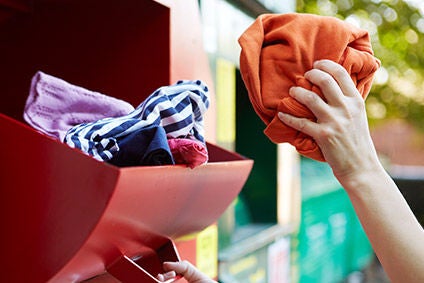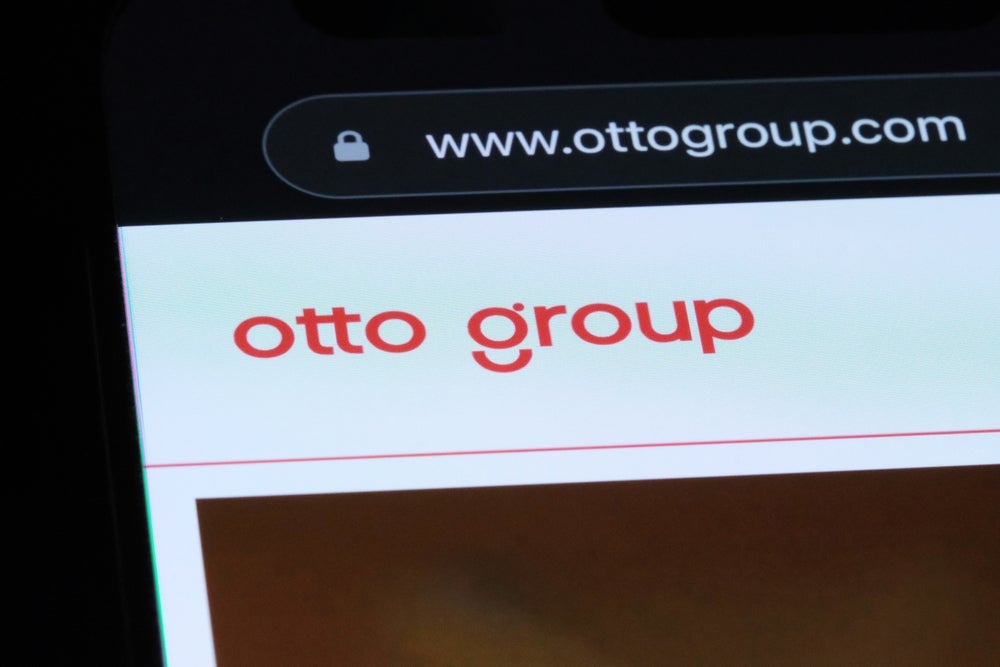
Clothes recycling options are a low-cost opportunity for retailers to boost their sustainability credentials – especially if put in place alongside other initiatives such as carbon reduction plans and rental schemes.
Asos’s partnership with DPD to launch ReLove, a clothes collection service, offers shoppers a more convenient way to donate their clothes to charity. Consumers can choose from a wealth of options to clear out their unwanted apparel.
ReLove lets shoppers expecting an ASOS delivery from DPD to book a collection of unwanted clothing for the same time. Consumers can choose from five charities to donate their clothes to, and DPD sends the items to the shoppers’ chosen charity to be sold in its shops.
In a similar vein, Oliver Bonas is partnering with online charity shop Re-Fashion, giving shoppers the option to receive a donation bag with their order, which they can return via Collect+.
Though these two schemes are not new ways of recycling clothing, they make donating to charity more convenient. This is especially important as a number of charity shops have temporarily stopped accepting donations due to being overwhelmed with garments as many consumers spent the Covid-19 lockdowns clearing out their wardrobes.
How well do you really know your competitors?
Access the most comprehensive Company Profiles on the market, powered by GlobalData. Save hours of research. Gain competitive edge.

Thank you!
Your download email will arrive shortly
Not ready to buy yet? Download a free sample
We are confident about the unique quality of our Company Profiles. However, we want you to make the most beneficial decision for your business, so we offer a free sample that you can download by submitting the below form
By GlobalDataAllowing shoppers to choose which charity to donate to also adds an important level of transparency to the scheme. This is because it is often unclear what happens to items that are dropped off at retailers’ collection points, as well as providing a more meaningful incentive. Additionally, these two schemes will boost Asos’s and Oliver Bonas’s reputations for sustainability with relatively little investment.
Many retailers such as H&M and Zara have offered in-store garment drop-off schemes for a while now, although this method of recycling has become more inconvenient due to the accelerated shift of spend online.
The Asos ReLove initiative is a reimagined version of in-store takeback schemes but lacks one of the key advantages – there is no financial benefit. H&M, for example, gives shoppers a GBP5 voucher to use towards their next purchase of GBP25 or more. And if consumers donate Marks & Spencer items to Oxfam they receive a GBP5 clothing & home voucher, guaranteeing further spend with the retailer. To ensure more shoppers use ReLove, Asos should consider offering an incentive, whether that is a gift card, discount code or early access to sales.
An increasingly prevalent method of clearing out unwanted clothing is resale. Consumer-to-consumer platforms such as Depop are growing in popularity especially among young shoppers, with the majority of items sold being second hand, vintage or upcycled.
Brands themselves are also stepping into the resale space, with players such as COS, Levi’s and The North Face introducing their own platforms to sell second hand items sent back to the brand by shoppers.
As consumers become more used to this model and aware of its environmental benefits, these branded platforms are likely to become more common. However, resale is less viable for value clothing and is only suitable for apparel in good condition, so is not a solution for all unwanted clothing.
Though there are a wealth of options to give unwanted clothing a second life, there needs to be a more universal solution if the apparel industry is going to become truly circular – which is the ultimate aim of many retailers including Asos and H&M.
Key to this is the dilemma of what happens to items in poor condition. The majority are likely to end up in landfill – and innovation will be needed to solve this problem.









Related Company Profiles
Marks and Spencer Group plc
ASOS Plc
H & M Hennes & Mauritz AB